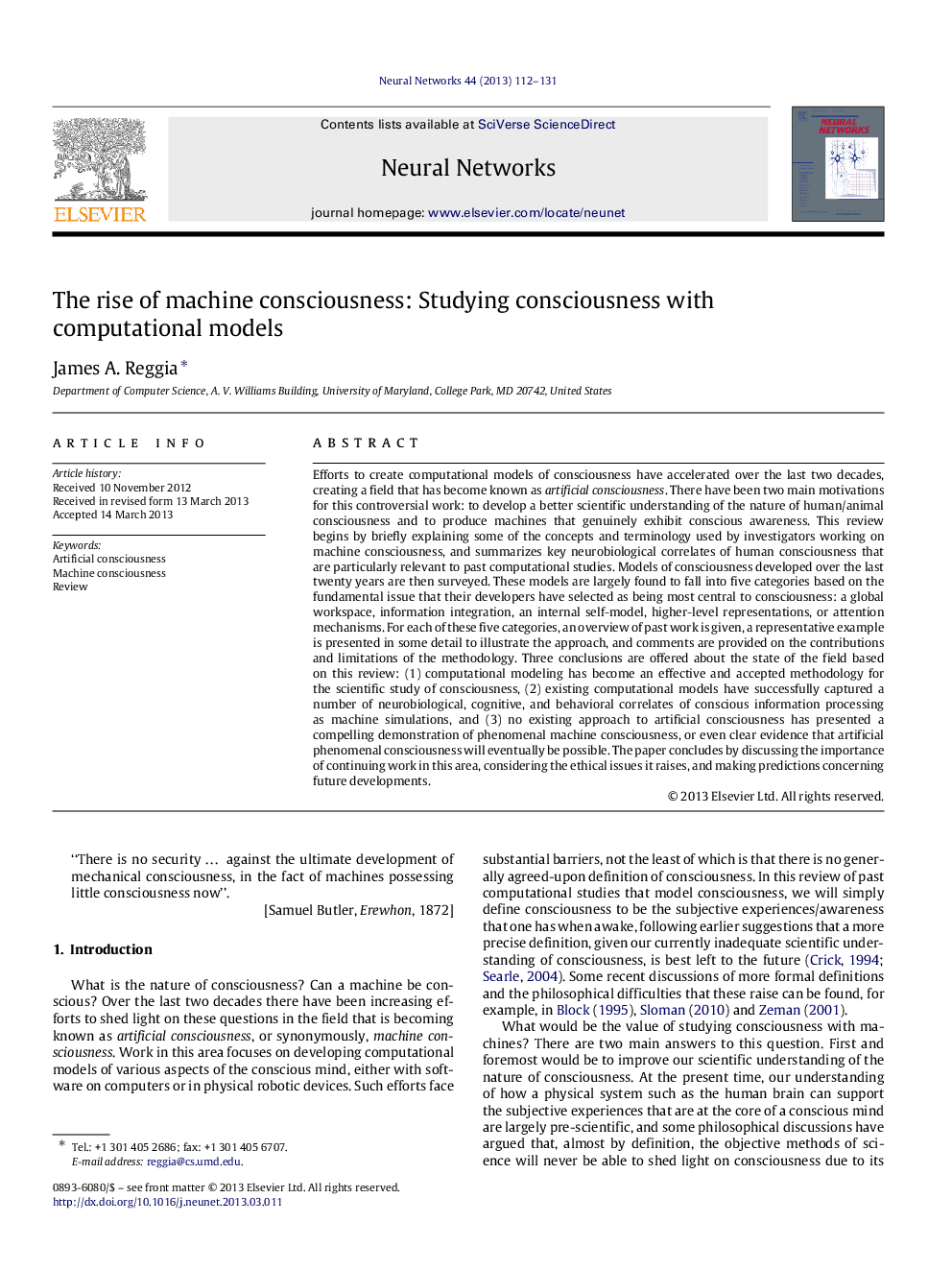| کد مقاله | کد نشریه | سال انتشار | مقاله انگلیسی | نسخه تمام متن |
|---|---|---|---|---|
| 404125 | 677391 | 2013 | 20 صفحه PDF | دانلود رایگان |

Efforts to create computational models of consciousness have accelerated over the last two decades, creating a field that has become known as artificial consciousness. There have been two main motivations for this controversial work: to develop a better scientific understanding of the nature of human/animal consciousness and to produce machines that genuinely exhibit conscious awareness. This review begins by briefly explaining some of the concepts and terminology used by investigators working on machine consciousness, and summarizes key neurobiological correlates of human consciousness that are particularly relevant to past computational studies. Models of consciousness developed over the last twenty years are then surveyed. These models are largely found to fall into five categories based on the fundamental issue that their developers have selected as being most central to consciousness: a global workspace, information integration, an internal self-model, higher-level representations, or attention mechanisms. For each of these five categories, an overview of past work is given, a representative example is presented in some detail to illustrate the approach, and comments are provided on the contributions and limitations of the methodology. Three conclusions are offered about the state of the field based on this review: (1) computational modeling has become an effective and accepted methodology for the scientific study of consciousness, (2) existing computational models have successfully captured a number of neurobiological, cognitive, and behavioral correlates of conscious information processing as machine simulations, and (3) no existing approach to artificial consciousness has presented a compelling demonstration of phenomenal machine consciousness, or even clear evidence that artificial phenomenal consciousness will eventually be possible. The paper concludes by discussing the importance of continuing work in this area, considering the ethical issues it raises, and making predictions concerning future developments.
Journal: Neural Networks - Volume 44, August 2013, Pages 112–131